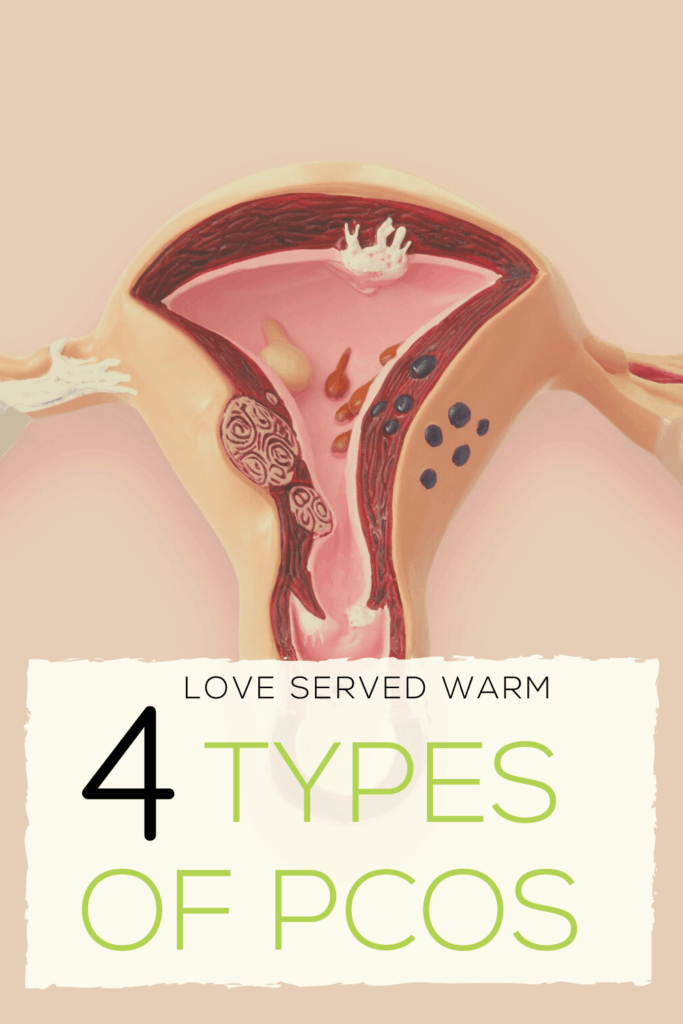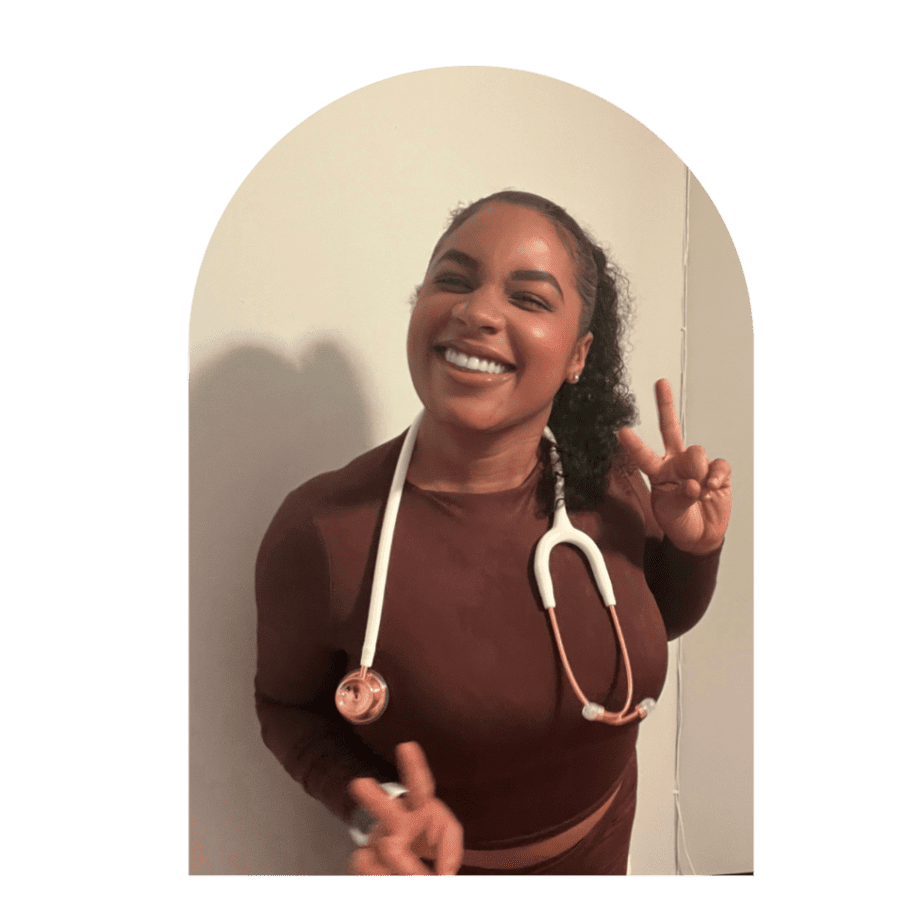There are some affiliate links in this article. If you click on them I may receive a commission
What is PCOS?
The naked truth with PCOS exposed. PCOS is a common endocrine disorder. It is estimated to affect 1 in 10 women. 50% of women are undiagnosed. It is the number one cause of infertility in women, worldwide. Women with PCOS can suffer from menstrual cycles that are very long and or cycles that are irregular or completely absent.
It may cause elevated levels of male hormones (androgens). These androgens are responsible for some unfavorable side effects that we’ll talk about a little later on.
Upon ultrasound confirmation, women can develop small cysts on their ovaries. Women can also have trouble releasing their matured eggs from the ovaries. This results in polycystic ovaries.
Although the name suggests that Polycystic ovaries are necessary for a diagnosis. This is actually false. The hallmark symptom for PCOS is increased androgens. Polycystic ovaries are one of the criteria that a woman needs to be considered for PCOS, however, it is not the end all be all of a PCOS diagnosis.
What Causes PCOS?
There is no direct known cause linked at this time. Research indicates that it stems from a high level of male hormones in a woman, that prevents the woman from producing hormones naturally. It also disrupts a woman’s ability to normally create eggs for having a baby..
If a woman’s ability to create eggs normally is affected she will have trouble trying to have a baby.
Different Kinds of PCOS?
There are different types of PCOS. Don’t allow yourself to fall into the cookie-cutter mindset. Even if you do not meet the criteria of one of the types of PCOS 100% below, it doesn’t mean you don’t have PCOS. Only a physician can diagnose you with PCOS upon further testing.
Below are the four types of PCOS;
1. Insulin-resistant PCOS
Insulin resistant PCOS is one of the most common forms. Insulin is a hormone produced by the pancreas. Its job is to help our bodies absorb sugar (glucose) from our blood. When your body is working normally, insulin helps to make sure your body doesn’t get too much or too little sugar.
High levels of insulin in the blood prevent ovulation and trigger the ovaries to create testosterone.
Want to Learn more about how you can learn to manage your PCOS, Naturally? Click here to learn more about The Healthy Period Protocol
2. Hidden Cause PCOS
Hidden Cause PCOS results from another process in your body that is causing you to have PCOS. Causes of Hidden Cause PCOS may include thyroid disease, Vitamin deficiencies (such as zinc and Vit. D), and increased levels of prolactin. Once the initial issue is resolved, PCOS should be alleviated within 3-6 months.
3. Post Pill PCOS
Post pill PCOS occurs after a woman stops taking hormonal birth control. She may meet the criteria for PCOS. Some women may experience a delay in the start of their menstrual cycle once they stop taking the pill. For other women, their bodies may not be able to restart their menstrual cycle without help.
A woman may have trouble ovulating after stopping birth control. This may be caused by an increase in prolactin levels. Prolactin levels increase in response to luteinizing hormone (LH).
4. Inflammatory PCOS
Inflammatory PCOS occurs as a result of chronic inflammation in the body. The inflammation can be caused by many things. The inflammation stops a woman’s ability to ovulate and disrupts hormone receptors. By blocking the hormone receptions, the body may stimulate the production of DHEA.
High DHEA levels can be indicative of PCOS, adrenal cancer, or tumor. Which may result in making the adrenal gland hyperactive.
What are the symptoms of PCOS?
The symptoms of PCOS include:
- Irregular menstrual cycle
- Excessive hair growth
- Acne
- Weight Gain
- Male pattern hair loss/thinning
- Acanthosis nigricans- A condition that causes darkening of the folds of the neck.
- Headaches
- Infertility
- Anxiety
- Depression
Want to Learn more about how you can learn to manage your PCOS, Naturally? Click here to learn more about The Healthy Period Protocol
How is PCOS Diagnosed?
There are three ways to diagnose.
Blood Testing
PCOS causes increased androgen levels in the blood. Elevated levels of androgens in the blood are the hallmark indicator for diagnosis.
Ultrasound
Your physician may order an ultrasound as one of your diagnostic tests. If your ultrasound does not reveal a cyst, it doesn’t automatically exempt you from a diagnosis. Some women may have this condition and not have any cysts present.
Irregular periods
Women with PCOS suffer from infrequent periods. If you have consistently missed periods or prolonged cycles. Discuss with your doctor your risk of having PCOS. Want to learn how to fix your irregular periods, naturally click here
Does PCOS cause infertility?
 Having PCOS does not mean you cannot get pregnant. It only means you may have some additional trouble getting there It is one of the most COMMON but TREATABLE causes of infertility.
Having PCOS does not mean you cannot get pregnant. It only means you may have some additional trouble getting there It is one of the most COMMON but TREATABLE causes of infertility.
Due to issues with woman releasing her mature eggs and hormonal imbalances. Women with PCOS may have additional challenges in getting pregnant.
Want to Learn more about how you can learn to manage your PCOS, Naturally? Click here to learn more about The Healthy Period Protocol
Health Risks Associated with PCOS?
PCOS can put a woman at risk for many health problems including but not limited to;
Diabetes
Women are able to produce insulin. The problem is that their body is unable to effectively utilize the insulin. This puts a woman at an increased risk of developing type two diabetes.
According to Medical News Today, half of all women diagnosed will develop type two diabetes by the time they turn 40 years old.
High Blood Pressure
According to a study conducted by the Dallas Heart Study on women with PCOS. Women with PCOS have a significant increase in the prevalence of high blood pressure.
High Cholesterol
There is no clear indication as to why women experience high cholesterol as a result of having PCOS.
Mood disorders
It can increase the likelihood a woman will suffer from mood disorders, anxiety, and depression.
Endometrial cancer
PCOS can lead to increased estrogen levels as a result of hormonal imbalance. Increased estrogen levels can put a woman at increased risk for endometrial cancer.
Insulin resistance
According to the U.S. Library of Medicine, insulin resistance affects 65–70% of women with Polycystic Ovarian Syndrome.
Want to Learn more about how you can learn to manage your PCOS, Naturally? Click here to learn more about The Healthy Period Protocol
Is there any cure for PCOS?
 There is no cure at this time. However, symptoms can be managed by medications, and lifestyle changes.
There is no cure at this time. However, symptoms can be managed by medications, and lifestyle changes.
For best results, I recommend working with a PCOS Hormone Coach to work as a cheat sheet… showing you exactly what you need to do to hit your goals, NO FLUFF!
To learn more about how you can book me as your PCOS Hormone coach, CLICK HERE.
Tracking your PCOS symptoms
Tracking your menstrual cycle and your symptoms are an important factor in seeking treatment.
Have you ever heard the saying “ You cannot manage what you don’t measure”
One of the best things you can do to advocate for yourself as a woman who believes she may have this condition is to keep track of your important symptoms such as;
✨Your Cycle Length and Health- How long is your Period? Is it Painful? Does it Last more than 7 days, or less than 3 days? Does it come every single 28 days? Are you able to predict and track it?
✨Sleep- how many hours a night are you sleeping? Are you waking up feeling more tired than the night before
✨Diet- how are you eating? How are you managing these intense cravings? It’s not good enough to just say cut out sugar. What does that even look like?
✨Hormone levels- even if your labs are normal. Is your body saying otherwise? Do you have facial hair?
✨Supplements- it’s not just good enough to be taking any supplement. The brand quality and purity matters too.
✨Stress- what’s going on in your life? Who do you vent to when times get hard? Who holds space for you?
✨Activity- Do you move your body every single day? What kind of workouts do you engage in?
Tracking your symptoms is the most important indicator of your PCOS management. Learning to quantify your symptoms to see if they are truly getting better in response to your lifestyle and dietary changes is the only way to positively create changes in your symptoms. If you would like to learn more about how I help my clients learn to track and fix their PCOS symptoms, click here.
Prefer Paperless Tracking?
Here is a list of 13 FREE apps by Refinery 29 to help you track and manage your anxiety. Click over to their site to read more about each individual app.
- Daylio: Free
- RealifeChange: Free
- Therapy Buddy: Free
- Smiling Mind: Free
- HelloMind: Free
- Anxiety Reliever: Stress and Anxiety Relief: Free
- MindShift: Free
- Moods: Free
- MoodTrack Diary: Free
- T2 Mood Tracker: Free
- Self-Help for Anxiety Management: Free
- Stigma: Free
- What’s Up?: Free
What are the treatment options for managing PCOS?
Treatment options for managing this condition vary. It depends on your current symptoms and what you would like to treat. It affects various women differently. Based on a woman’s individual symptoms she may seek treatment for the specific symptoms affecting her.
Here are some of the options for managing:
Lifestyle change:
Lifestyle changes can help manage a woman’s symptoms. weight loss as a minimum as 5% of total body fat loss can have dramatic effects on a woman’s ovary function.
The Healthy Period Protocol- 90 Day Mentorship Program:
The Healthy Period Protocol is a 90 exclusive 90 day mentorship program that for women with PCOS struggling to fix their painful or irregular period, manage intense carb cravings, and increase your energy naturally. This program uses my signature framework and methodology that has helped over 300 women learn to fix their periods and manage their PCOS symptoms, naturally. You need a PCOS program that deeply understands the obstacles that prevent women with PCOS from hitting their goals.
Hiring a PCOS Hormone coach allows you to create a individualized health plan with proven results for women just like you. Like to learn more about how you could apply for The Healthy Period Protocol program? Click here
Insistol:
This is hands down one of the best supplements that I recommend for any women suffering from hormonal imbalances. Because I love you so much I put a link here for a coupon
Medications:
Birth Control is usually the first medication physicians use to treat. Metformin, an anti-diabetic medication is also commonly prescribed. Metformin works to help the body respond better to the insulin that our bodies naturally create. Women with PCOS commonly suffer from low insulin sensitivity or insulin resistance.
Insulin sensitivity is the way your body responds to the insulin that is produced. If our bodies respond quickly and appropriately then our bodies have high insulin sensitivity. If our bodies respond sluggish or not at all to insulin levels in the blood, we are considered insulin resistant. Metformin works to help our bodies respond properly to insulin.
Birth control works to help regulate a woman’s hormonal imbalances. Birth Control works to increase a woman’s estrogen levels, and decrease a woman’s testosterone levels.
Your Hormone Fairy Godmother and Coach,
XOXO!
Tianna T.











Reader Interactions